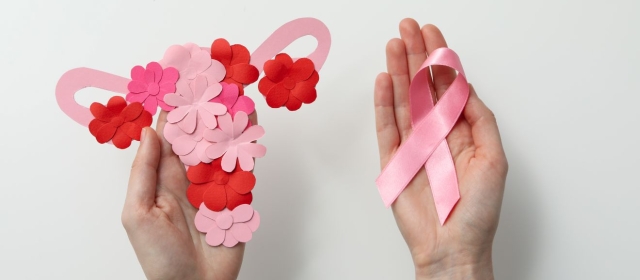
All Sexual Health Headlines
Upcoming Events

- Sexual Health Topics: Women’s Sexual Health, Mental Health & Psychology, Sexual Orientation & LGBTQIA+ Health
Mayer-Rokitansky-Küster-Hauser syndrome (MRKH) is a congenital disorder (meaning people are born with it) that affects around 1/5000 people assigned female at birth. Those with MRKH are born with an absent or underdeveloped uterus, cervix, or upper vagina.

- Sexual Health Topics: Women’s Sexual Health, Sexual Health Management & Treatments
Data from the past few years show a recent rise in interest for cosmetic surgeries. Specifically, there has been a rise in labiaplasties, which researchers believe shows there may be concern over genital appearance. In fact, previous studies to create measurement scales have revealed that up to 50% of women studied have expressed concern over the appearance for nonaesthetic reasons as well.

- Sexual Health Topics: Men’s Sexual Health, Women’s Sexual Health, Sexual Orientation & LGBTQIA+ Health
Existing studies from the US and Scandinavia detail the sexual behavioral patterns of gay, lesbian, and bisexual men and women. In the United States, gay and bisexual individuals are more likely than heterosexuals to have high rates of unsafe sex and sexually transmitted infections (STIs), as well as higher rates of sexual coercion over their life.

- Sexual Health Topics: Women’s Sexual Health
Primary Sjögren’s Syndrome (pSS) is an autoimmune disorder in which certain cells malfunction and overpower the glands that provide lubrication to a variety of areas. Those with pSS may experience extreme dry eye and mouth, as well as an increased risk of getting infections of any kind.

Sexuality is an important part of life for many people at all ages, stages, and conditions. This includes older ages and age-related health complications. Around 40% of adults aged 65-80 years old are reported to be sexually active in several studies globally, although the frequency of sexual activity tends to decline with age.

- Sexual Health Topics: Women’s Sexual Health, Cancer & Sexual Health (Oncosexology), Sexual Health Management & Treatments
There are some individuals who carry a breast cancer genes (BRCA) mutation. This mutation leaves them at a higher risk for developing breast and ovarian cancers throughout their lifetime.

- Sexual Health Topics: Women’s Sexual Health
Pelvic floor disorders are chronic conditions that can negatively impact female sexual function, whether by distress from sexual pain or problems with the sexual response cycle (desire, arousal, orgasm). These conditions range anywhere from incontinence (both urinary and bowel) to pelvic organ prolapse (pelvic organs descend and begin to fall out through the vaginal canal).

- Sexual Health Topics: Men’s Sexual Health, Women’s Sexual Health, Sexual Orientation & LGBTQIA+ Health
Receptive anal intercourse (RAI) includes any sexual activity in which one partner inserts their body part (finger, penis, tongue) or object (sexual aids) into their partner’s anus and is more common than many may think. Approximately 36% of heterosexual women and 44% of heterosexual men have reported engaging in anal sex with a partner in their lifetime, and even more bisexual, lesbian, and gay men and women.

- Sexual Health Topics: Women’s Sexual Health
Androgens are a group of sex hormones that are typically associated with male development; however, all genetic sexes carry and produce androgens. Currently, there is insufficient research on the role androgens play in the sexual function of premenopausal women.

- Sexual Health Topics: Women’s Sexual Health, Mental Health & Psychology, Sexual Health Management & Treatments
Sexual interest/arousal disorder (SIAD) is considered the most common sexual dysfunction (SD) in women, presenting in 39% of American women and 40% of Canadian women. It’s characterized by low sexual desire or low sexual arousal over a period of at least 6 months. Both women with SIAD and their partners report higher levels of sexual distress, which is another key characteristic of the SD. It has been suggested in recent research that couples’ emotional regulation plays a very important role in determining the ability to cope with SIAD and accompanying sexual distress, based on the Interpersonal Emotion Regulation Model of Women’s Sexual Dysfunction. This suggests that both partners’ emotional regulation strategies could lead to lower levels of sexual and psychological distress, as well as higher levels of relationship satisfaction.

- Sexual Health Topics: Women’s Sexual Health
Diabetes mellitus (DM) is a metabolic condition most known for the body’s inability to produce or utilize insulin properly. If not managed carefully and holistically, including during treatment and care visits, DM can lead to further complications, such as sexual dysfunction (SD), of which 20-80% of diabetic women experiences symptoms. Sexual dysfunction experienced by diabetic women may include genital arousal disorder (caused by chronic hyperglycemia) or low self-esteem related to the overall impact of diabetes that may negatively affect sexual functioning. It’s assumed that as DM progresses, risk of SD increases.

- Sexual Health Topics: Men’s Sexual Health, Cancer & Sexual Health (Oncosexology), Sexual Health Management & Treatments
Active surveillance (AS) refers to a low-risk, localized prostate cancer management technique, which involves monitoring the disease through prostate-specific androgen (PSA) tests, digital rectal exams, multiparametric MRIs, and biopsies. This technique minimizes complications associated with surgery and radiation, such as erectile dysfunction and incontinence, as surveillance can help detect disease progression early on. It’s estimated that one in six men will develop prostate cancer at some point in their lifetime.
Other conditions also tend to affect this population of men, such as hypogonadism, which can be explained as low testosterone levels. Low testosterone affects roughly 40% of men over the age of 45. Normally, testosterone replacement therapy (TRT), is the preferred treatment for managing hypogonadism. However, this may be avoided for those on AS for prostate cancer due to a belief that higher testosterone levels may contribute to the progression of prostate cancer. Nevertheless, recent research on the androgen saturation model suggests that prostate cancer progression is more likely at lower testosterone levels and less likely at higher levels.
Between 2009 and 2023, researchers at the Scott Department of Urology at Baylor College of Medicine in Texas aimed to evaluate the effects of TRT and prostate cancer progression in men on AS. They also hoped to contribute to the lacking available literature by providing clarity regarding the feasibility of TRT in these men.
A total of 43 men with a median age of 62 with a prostate cancer diagnosis were evaluated over at least a 12-month period while undergoing TRT. The average evaluation period was around 73 months. Of these men, 32 (74.4%) followed through with the evaluation period, five (11.6%) stopped because they felt they no longer needed TRT, three (7%) stopped due to cancer progression following biopsy, and one (2.3%) stopped due to an unrelated hospitalization.
Prior to starting TRT, the median testosterone serum level of the group was 272 nanograms per deciliter (ng/dL), and when measured after the start of TRT, that median level had jumped to 578.5 ng/dL. Seven men (16.3%) had testosterone levels below 250 ng/dL, which is the low testosterone threshold proposed by the androgen saturation model. All 43 men had normal testosterone levels (above 300 ng/dL) following the start of TRT.
Additionally, the median PSA level prior to starting TRT was 2.8 nanograms per milliliter (ng/mL), while after starting TRT the PSA levels dropped to 2.6 ng/mL, which researchers found to be an insignificant difference. However, seven (16.3%) of patients demonstrated a PSA increase of at least 1 ng/mL, and three of these seven patients had an elevated baseline PSA level of 3.5 ng/mL. Researchers believe that while PSA level increase with TRT is generally insignificant toward disease progression, elevated baseline PSA levels may be a risk factor for prostate cancer progression. This is in line with the androgen saturation model, in which higher testosterone levels are thought to be less likely to lead to disease progression.
Biopsy results were only available for 15 patients prior to and following the start of TRT. Of these 15 patients, 12 (80%) demonstrated no disease progression after an average of 44.28 months, three (20%) demonstrated an increase following an average of 79.5 months, and two (13.3%) had benign biopsy after an average of 9 months. One of these individuals had normal tissues after 12 years of TRT, while the other had normal tissues after 11 months. This data aligns with existing literature about prostate cancer, regardless of TRT.
Conclusion
Overall, results reflect the androgen saturation theory, which suggests that testosterone regulators (androgen receptors) are maximally saturated and able to function properly at a testosterone concentration of 240-250 ng/dL. In this study, only seven (16.3%) of men had baseline testosterone levels below this threshold and a significant increase in PSA following TRT. The other 83.7% had baseline testosterone levels above this threshold and virtually no significant increase in PSA levels following TRT.
Despite a small sample size and lack of generalizability, this study is still the largest retrospective single-center study of its kind. This allows future research to expand and specialize, focusing on larger patient groups and subgroups to fully understand the effects of TRT on the risk of prostate cancer progression.
Researchers say the results of this study contribute to existing evidence that TRT may be safe for men with low testosterone levels on AS for prostate cancer.
References:
- Applewhite, J., McCarter, J., Saffati, G., Kronstedt, S., Hinojosa-Gonzalez, D., La, T., Diejomaoh, R. M., Lipshultz, L. I., & Khera, M. (2025). Testosterone replacement therapy in men on active surveillance for prostate cancer. The Journal of Sexual Medicine, 22(3), 432–438. https://doi.org/10.1093/jsxmed/qdaf003

